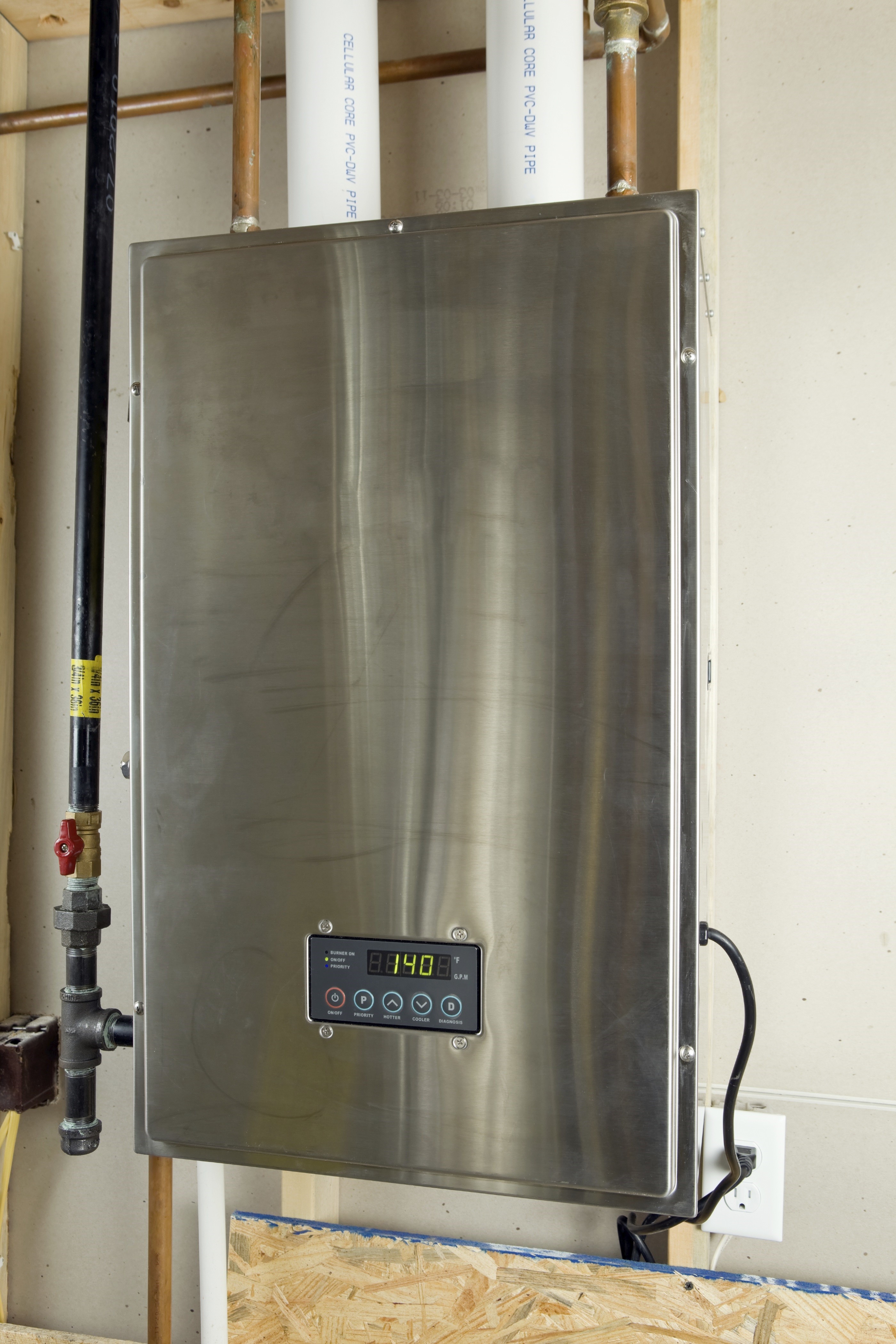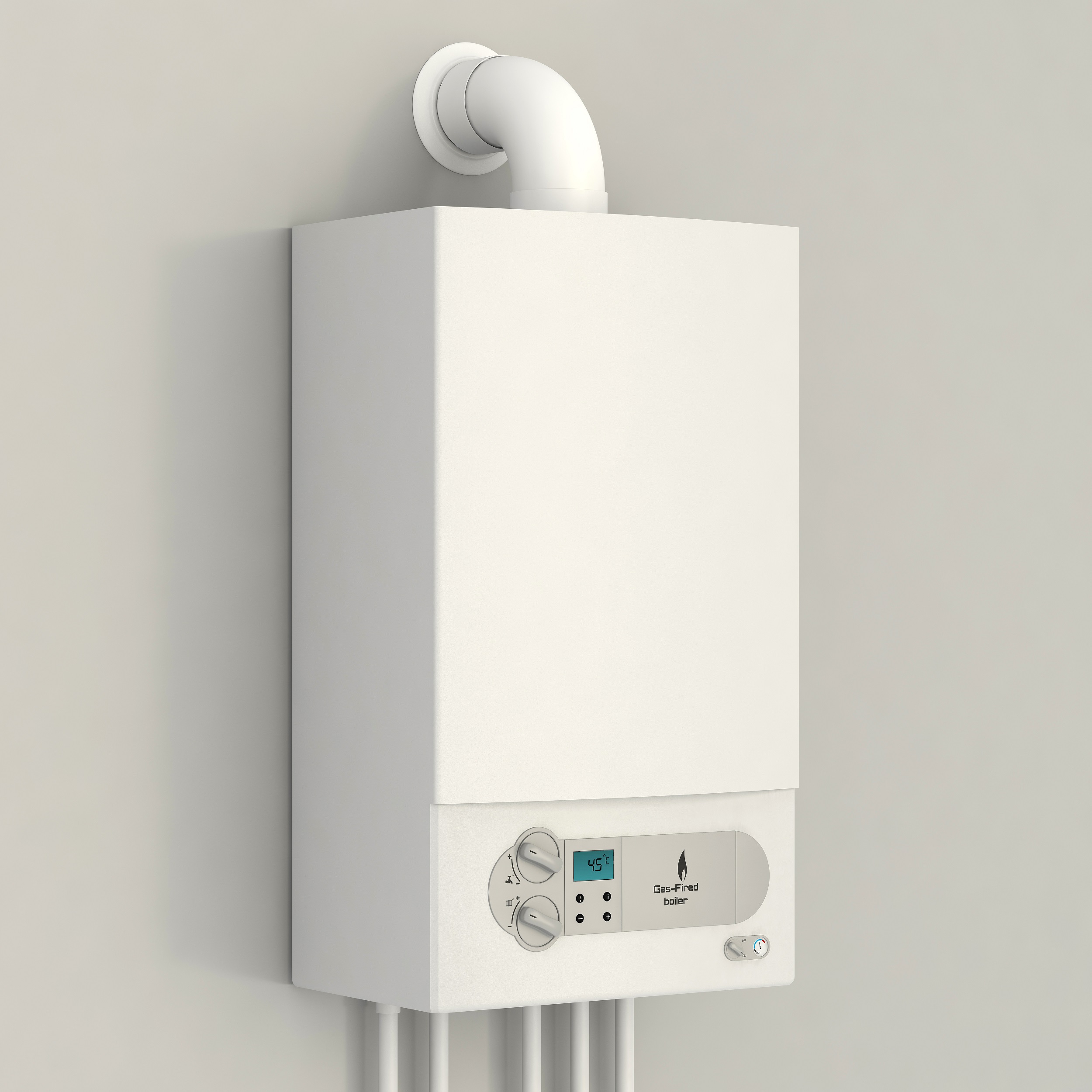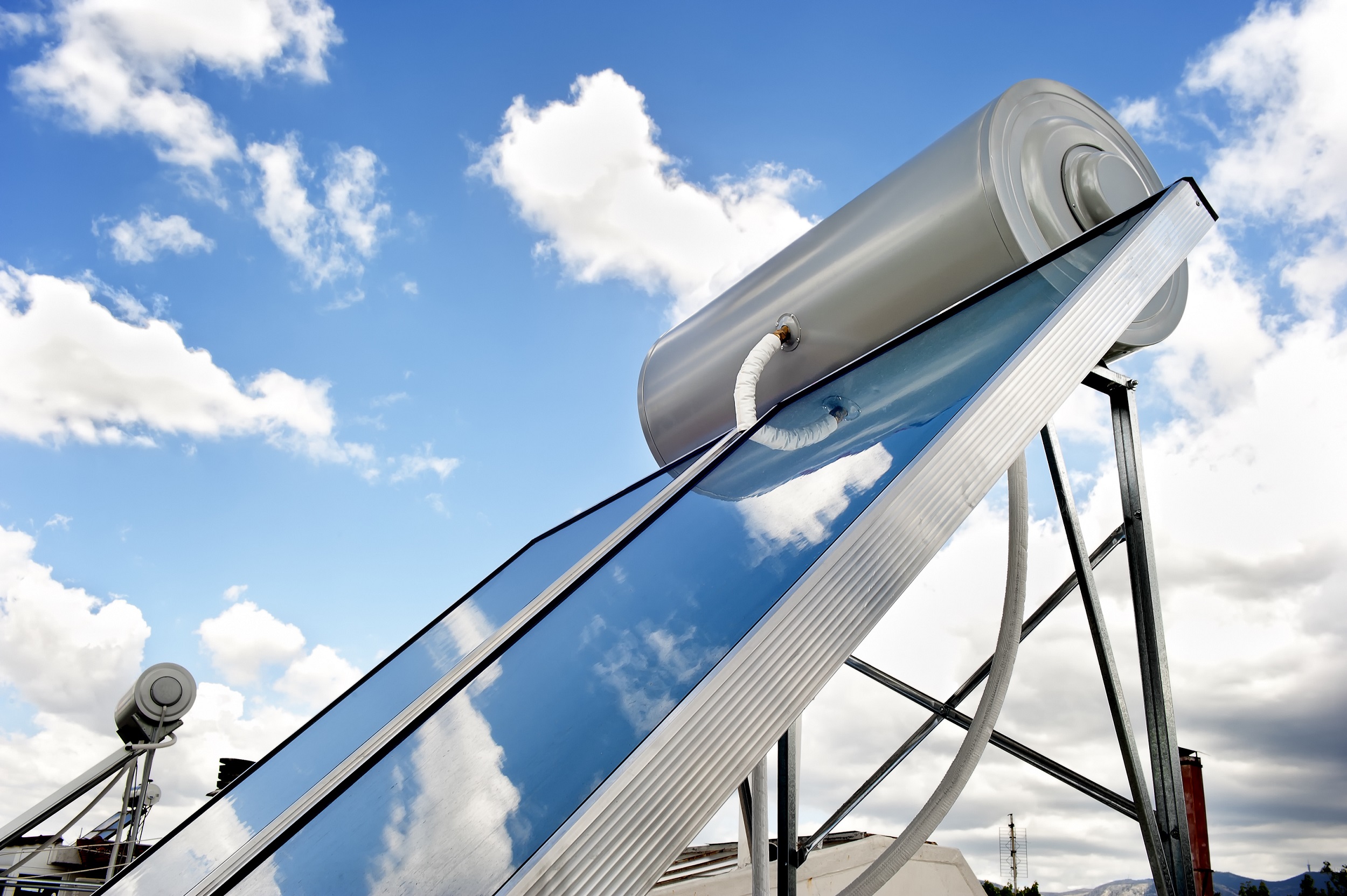Water Heaters: A Buyer’s Guide

Getting a new water heater is great, when you are doing it at your leisure because you want to upgrade. On the other hand, when your current heater has punked out and you need a new one ASAP, that can be a whole different situation. This guide will help you quickly navigate the things you need to know in order to select the right water heater for your home and your budget.
Space
While it may seem like one water heat can be swapped out for another, this is not always the case. Newer models often have thicker layers of insulation and can be both wider and/or taller than your old one. Measuring the area you have available for a water heater is a good place to start. That way, as you look at models and options, you can eliminate any that are over-sized for the space.
You will want to note, not only the height and width of the space, but also whether there is a drain available and how much space there is to pull warm air from the immediate area (which will be necessary when looking at hybrid water heaters).
Capacity
Capacity can get complicated, and you can always talk to a professional who handles water heater installations for help. Capacity has two systems of measurement to consider: 1. First-hour rating (FHR), and 2. gallons-per-minute (GPM). Figuring out how much hot water you use and how fast you need the water heater to recover are the major concerns. Two different households may have the same number of people, using a similar amount of hot water each day, but if one household uses it throughout the day while the other needs all the hot water concentrated in the mornings and evenings, it will make a difference in the size of water heater they each need.
The FHR is really the more important measurement to consider for storage-tank water heaters. It tells you how fast the heater can heat water over a specific period of time, such as the first hour. Households who do the laundry and run the dishwasher while everyone one is cycling through their showers in the evening will need a faster FHR capacity than that family whose usage occurs more evenly throughout the day.
The GPM rating is most important to consider when looking at tankless water heater options. While these water heaters allow for on-demand heating, and therefore aren’t held to a tank capacity, they do still have a maximum of how much hot water they can deliver over in a certain amount of time. Running the washing machine and the dishwasher may prove to be too much for lower-capacity tankless water heaters. If this is important to you, you may want to think about installing two of them.
Some average capacity information:
Number in Household Average gallon capacity
1-2 23-36
2-4 36-46
3-5 65 or more
Type of Fuel
There are five types of water heaters to choose between:
1. Storage Tank Water Heater
This is just what it sounds like, and is the most common type of water heater found in the majority of homes. It stores a set amount of hot water which is ready for use when needed.
What to consider
- You have a gas or and electric option with this type of water heater. The gas option costs more to purchase, but the monthly cost to run it is about half of what the electric version costs in most areas.
- In either case (gas or electric), look for a good amount of insulation, which comes standard with most reliable brand names, and the highest efficiency rating you can afford.
2. Tankless/On-Demand Water Heater
This model of water heater is becoming more common, it heats water as it is used, rather than keeping a large tank of water warm at all times.
What to consider
- A tankless water heater is a larger investment upfront, but will have a significant savings in utilities each month.
- The upfront cost is high in homes that require an electrical upgrade to install an on-demand water heater (which is more often the case, than not). Homes fitted for natural gas will not require an upgrade.
- There is a limit to the amount of hot water that can be used at one time—generally 3.5 gallons per minute—so it may cause problems for homes that frequently run appliances/showers at the same time.
3. Heat Pump/Hybrid Water Heater
Heat pump water heaters transfer heat from the air into the water. They utilize a storage tank and are otherwise similar to a standard storage tank model.
What to consider
- Hybrid water heaters take about 60% less energy to run.
- These water heaters need to be placed in an area where the air temperature does not drop below 40 degrees.
- Heat pump models are taller and require a clearance of about 7 feet.
- They also require about 1,000 cubic feet of relatively warm (over 40 degrees) air around them, so will not work in a small closet-type area.
- It needs a drain nearby where the unit can release condensation.
4. Solar Water Heater

Solar water heaters have roof-mounted solar panels that transfer heat into a closed-loop of fluid that heats water in a tank.
What to consider
- These systems are best for areas that see nearly year-round sun. They will not amount to enough savings to be worth the cost for areas that do not have a very sunny climate for a majority of the year.
- Most homes with a solar water heater also have a backup system that takes over when there is not enough sun to cover the energy needed.
5. Condensing Water Heater
These water heaters reuses what would have been hot gas exhaust by blowing it back into the unit where water can absorb most of that heat. This technology makes these water heaters much more efficient than the traditional storage tank water heaters.
What to consider
- These are water heaters are only available with gas as a source of fuel.
- The first-hour recovery is strong enough that most homes, even those with heavy usage, will rarely ever run out of hot water.
- The initial investment in one of these water heaters is about two to three times that of a regular gas storage tank water heater.
Cost and Energy Efficiency
 The initial cost of a water heater goes hand-in-hand with considering its efficiency. While some cost more upfront, they may make up the difference in savings as quickly as the first year or two.
The initial cost of a water heater goes hand-in-hand with considering its efficiency. While some cost more upfront, they may make up the difference in savings as quickly as the first year or two.
If you are building a new home or have multiple fuel options already available, check out the average cost of fuel in your area. While this is one consideration, do not let the decision-making stop there. Natural gas may be lower in one area than the cost of electricity, but if you have the right space/setup for an electric heat pump water heater, the high level of efficiency may still make it a better selection than a storage tank water heater that uses gas.
The Take Away
A good starting place is to consider the space you have and your family’s capacity of use. Look at a few options that fit your space, and use that to narrow down some units that are within your budget range. Before making any final decisions, it is best to consult a professional water heater installer to ensure you have done all the calculations correctly and not left out any items that will have a major influence on the right choice of water heater for your home.
M5 Plumping, Inc. is happy to help our local residents with any water heater installations in Vancouver, WA or the surrounding metro area.
